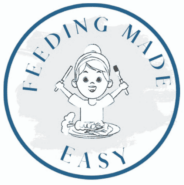One thing you may notice when looking at gentle formulas is that many of them have reduced lactose. Many adults are lactose intolerant, so if your baby is having poop problems, it would make sense to remove something that upsets the stomach of so many. Before you can decide if a lactose free formula is right for your family, you need to understand what lactose is and why it’s in formula in the first place.
If you find formula feeding overwhelming, make sure to check out my Formula Feeding Guide! It covers all the basics from choosing a formula to figuring out how much your baby needs to how to actually offer it to your baby.
This post may contain affiliate links and when you click on the links I may earn a small commission at no charge to you. As an Amazon affiliate, I earn a commission from qualifying purchases.
What is lactose?
Lactose is the sugar found in milk. When you combine glucose with galactose, you get lactose. In order to break apart those molecules, we need an enzyme called lactase. A deficiency in lactase is what causes lactose intolerance.
Lactose is a simple carbohydrate. It’s relatively easy for the body to break down and use the sugars, assuming you have the enzyme, which humans are born with.
Why do we use lactose in baby formula?
It is the carbohydrate found in breastmilk and formula tries to be as close to breastmilk as possible. Babies are born with the lactase enzyme, so they are able to break down lactose.
Because it’s a simple carbohydrate, baby’s body doesn’t have to work too hard to break it down. Babies are born with immature gastrointestinal systems (which is often why they are gassy) and we don’t want to make it harder for them by offering them a complicated carbohydrate to break down.
How common is lactose intolerance in babies?
Incredibly rare. There are babies with a condition called galactosemia (you will definitely know if your baby has this) where the body can’t break down galactose. Remember galactose is one of the molecules in lactose. If the baby can’t break down galactose, they can’t tolerate lactose. This isn’t the same as the lactose intolerance we think of as adults.
Lactose intolerance in babies is estimated to affect around 1 in 60,000 babies in Finland, where it is more common (1). It is a genetic condition called congenital lactase deficiency. Both parents must carry a gene for it, although they may not show symptoms. It is much more common after age 3, affecting up to ~65% of the population.
What are the benefits of a reduced lactose or lactose free formula?
For babies with galactosemia or congenital lactase deficiency, a lactose free formula is critical. Their bodies are not able to break down the lactose or its components.
For everyone else, the benefits are less clear. When they reduce lactose in a formula, manufacturers must add another carbohydrate (usually corn syrup solids, maltodextrin, brown rice syrup, etc). Roughly 40% of the calories in formula come from carbohydrates and babies need them to be in an easy to digest form.
While there is absolutely nothing wrong with these other carbohydrates and they will provide your baby with all the nutrients they need, I do want to point out that many of them are cheaper alternatives to lactose. So another benefit of lactose free formulas is that the company making the formula can save money.
What if my baby isn’t tolerating standard formula?
There are so many factors that could come into play here (feeding position, latch, bottle preparation technique, etc which is why I have a Formula Guide on all of this), but with regards to just the formula, for most babies the protein is the issue, not the lactose. Babies seem to tolerate the A2 milk proteins better. They are a bit newer and not as well studied. Partially hydrolyzed proteins are another option. They break down the protein into smaller molecules, making them easier to digest. For many babies, changing the protein will make more of a difference than changing the carbohydrate.
If you are concerned that your baby may have an allergy, seek out guidance from a medical professional. We don’t want to unnecessarily restrict foods from the diet. There are formulas designed for babies with allergies.
Many gentle formulas will change the protein AND the carbohydrate. This makes it difficult to know which factor is really making a difference. If your baby is tolerating a reduced lactose formula, there’s no reason to take them off of it. But if you’re looking to take your baby off a standard formula, I’d start by changing the protein first.
One thing you may have noticed with the Formula Shortage and the import of international formulas is that even the gentle formulas internationally use lactose as their sugar. The babies there aren’t having any more tolerance issues.

Krystyn Parks is a Registered Dietitian and Lactation Consultant who specializes in feeding children. She has a Master’s Degree in Nutritional Science from California State University Long Beach. She is an International Board Certified Lactation Consultant and has been registered with the Commission on Dietetic Registration since 2013.
